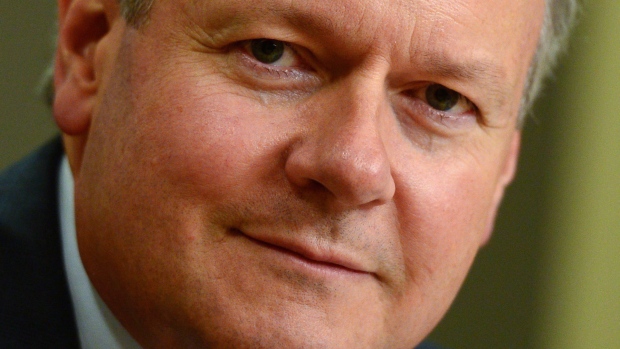MEXICO CITY - Hefty house prices increases in Canada's largest city are not sustainable and have been driven in part by speculation, the head of the Bank of Canada said on Thursday, but he declined to comment on troubled mortgage lender Home Capital.
Central bank Governor Stephen Poloz, speaking in Mexico City about the risks of U.S. protectionism, was asked repeatedly about Canada's housing sector and he reiterated concerns about signs of speculation in the hot Toronto market, which some fear is a bubble.
"You have the ingredients for higher housing prices, but no fundamental can give you the basis for a 30 per cent increase in price in a year," Poloz said in response to questions from audience members and reporters.
"We're pretty sure that this is not sustainable, it's certainly not sustainable by any of the models we've got."
He said he hoped rules the government put in place will help calm the housing market. Ottawa has tightened mortgage lending rules several times in recent years to cool the market and prevent home buyers from taking on too much debt.
Asked if he was monitoring or concerned about the situation with alternative mortgage lender Home Capital Group, which the Ontario Securities Commission has accused of hiding fraudulent mortgage broker activity from shareholders, Poloz said he would never comment on an individual company.
Home Capital shares fell 12 per cent on Thursday after a regulatory hearing to investigate claims the mortgage lender and three of its long-time executives had misled investors was adjourned until next month.
In earlier comments to business leaders, Poloz said uncertainty about U.S. trade policy is weighing on growth and business investment but both Canada and Mexico can thrive by striking trade deals with other countries.
"We know that with protectionism, everybody loses eventually, including the country that puts the policies in place," Poloz said in his remarks, which contained nothing new on monetary policy or the economic outlook, adding:
"And the uncertainty around this threat of increased protectionism is holding back growth."
With U.S. President Donald Trump determined to renegotiate the North American Free Trade Agreement or pull the United States out of the deal, Poloz urged political leaders in Canada and Mexico to continue to diversify trading agreements outside of North America.
He said work done at the bank shows a broad-based increase in U.S. tariffs would lead to lower U.S. output after about five years, whether or not other countries retaliate.










